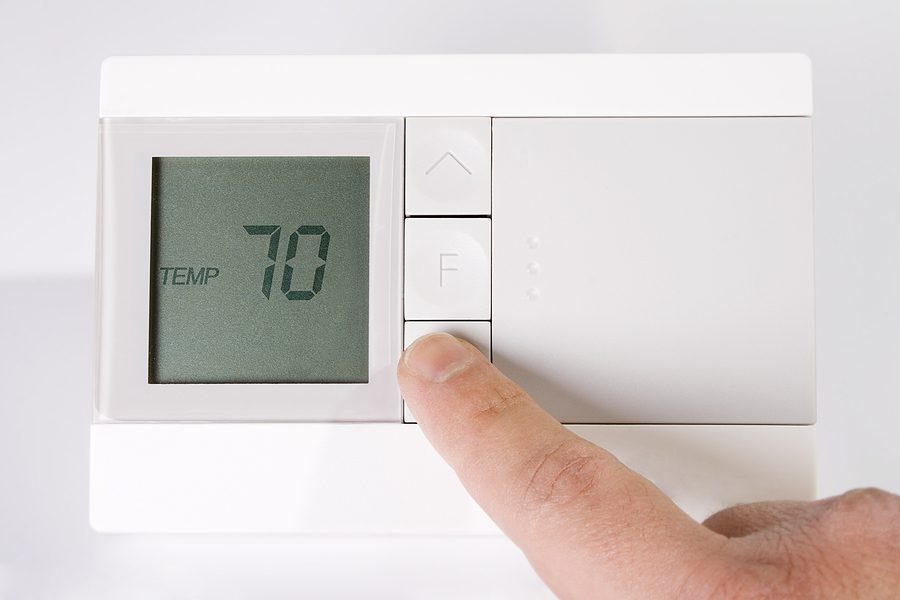
Home Energy Efficiency: Tips to Optimize Your Energy Consumption
Homeowners are always looking for ways to save money and enhance the comfort of their living spaces. One significant avenue to achieve this is through optimizing energy consumption. An energy-efficient home isn’t just environmentally friendly; it’s also cost-effective. By making your home more energy-efficient, you can reduce utility bills, enhance comfort, and increase your property’s value. This guide will provide homeowners with practical tips and insights to make their homes more energy-efficient, even if they aren’t looking to invest in a new HVAC system replacement right away.
Proper Insulation is Key
A well-insulated home retains heat during the winter and keeps the heat out during the summer. By ensuring that your home’s walls, attic, and basement are well-insulated, you can significantly reduce the need for heating and cooling, thereby reducing energy costs.
Understanding the Foundation of Energy Efficiency
Insulation is often the unsung hero of a comfortable, energy-efficient home. Many homeowners focus on high-tech solutions or new appliances, but insulation remains one of the most effective methods to optimize your home’s energy consumption. But how can you determine if your home is adequately insulated, and why is it so crucial for energy efficiency?
Signs Your Home Lacks Proper Insulation
- Fluctuating Indoor Temperatures: If you find that some rooms in your home are too cold during the winter or too hot during the summer, it might be a sign that those areas aren’t well-insulated.
- High Energy Bills: A sudden or gradual increase in your heating or cooling costs can indicate that your insulation isn’t doing its job, causing your HVAC system to work harder than it should.
- Cold Walls, Floors, and Ceilings: In the winter, the interior walls, floors, and ceilings in a well-insulated home should feel warm to the touch. If they’re cold, it could be due to insufficient insulation.
- Icicles or Ice Dams: During winter, if you notice large icicles hanging from your gutters or ice dams forming on the edge of your roof, it can be an indication of heat escaping from your home due to poor insulation.
- Drafty Areas: If you feel drafts near doors, windows, or even through walls, it might mean that you have insulation issues.
Benefits of Proper Insulation
- Optimal Temperature Regulation: A well-insulated home retains warmth during the colder months and stays cool during the warmer months. This creates a comfortable living environment regardless of external weather conditions.
- Reduced Strain on HVAC Systems: Proper insulation means that your heating or cooling system doesn’t have to work overtime. This can reduce wear and tear on the system, potentially prolonging its life.
- Cost Savings: By reducing the need for excessive heating or cooling, homeowners can see a significant reduction in their monthly energy bills.
- Environmental Impact: With less energy required to heat or cool your home, you’ll be reducing your carbon footprint, making a positive impact on the environment.
- Noise Reduction: Insulation can also serve as a sound barrier, reducing the amount of outside noise that enters the home and vice versa.
- Moisture Control: Good insulation can also help regulate moisture levels within your home, reducing the risk of mold and mildew growth.

Insulation is more than just stuffing materials into your walls. It’s a strategic approach to creating a barrier that keeps unwanted external temperatures out while maintaining the desired internal temperatures. For homeowners serious about optimizing their energy consumption, checking and upgrading insulation should be a top priority. It’s an investment that pays off in comfort, cost savings, and environmental responsibility.
Upgrade to Energy-Efficient Appliances
When it’s time to replace old appliances, consider investing in energy-efficient models. These appliances consume less power and can significantly reduce your monthly bills. Look for the ENERGY STAR label, which is a government-backed symbol for energy efficiency.
Understanding the ENERGY STAR Label
In today’s world, where sustainable living and energy conservation are paramount, homeowners are increasingly seeking ways to reduce their carbon footprint and save on utility bills. One effective way to achieve both these goals is by investing in energy-efficient appliances, and the ENERGY STAR label serves as a trusted guide in this endeavor.
What is the ENERGY STAR Label?
Founded in 1992 by the U.S. Environmental Protection Agency (EPA), the ENERGY STAR program aims to help businesses and individuals save money and protect the environment through energy-efficient products and practices. When you see an appliance with the ENERGY STAR label, it signifies that the product meets strict energy efficiency guidelines set by the EPA.
Decoding Energy Ratings
- EnergyGuide Label: Before diving into ENERGY STAR, it’s essential to understand the EnergyGuide label. This yellow tag provides consumers with an estimate of the product’s yearly energy consumption and how it compares to similar products. It’s a helpful baseline when considering any appliance purchase.
- ENERGY STAR Certification: For an appliance to earn the ENERGY STAR label, it must deliver the same or better performance as other appliances while consuming less energy. The specific energy-saving requirements vary based on the type and size of the appliance.
The Impact of Energy-Efficient Devices
- Cost Savings: Over time, appliances with the ENERGY STAR label can significantly reduce your utility bills. For instance, an ENERGY STAR-certified refrigerator can save you more than $50 per year in electricity costs compared to a non-certified model.
- Reduced Carbon Footprint: These efficient appliances use less power, which means fewer greenhouse gases are emitted by power plants. Investing in such appliances is a direct way homeowners can contribute to a more sustainable future.
- Less Strain on the Electrical Grid: Widespread use of energy-efficient appliances can reduce the total demand on the local and national electrical grid, which can result in fewer power outages and more stable energy prices.
- Enhanced Features: Many ENERGY STAR appliances come with advanced technologies and features that not only reduce energy consumption but also enhance the product’s performance.

Making the Change
When shopping for new appliances, it’s always worth considering energy efficiency. While ENERGY STAR labeled products might sometimes have a slightly higher upfront cost, the long-term savings in energy bills often make them a more economical choice in the long run. Moreover, several rebates and tax incentives are available for homeowners who invest in energy-efficient products.
Embracing energy efficiency in our daily lives doesn’t just make financial sense; it’s a step towards a more sustainable and responsible way of living. By understanding energy ratings and opting for ENERGY STAR labeled appliances, homeowners can make a meaningful impact on their energy consumption, bills, and the environment. As technology continues to advance, the benefits of energy-efficient appliances will only grow, making them a wise choice for any modern household.
Use Smart Thermostats
Smart thermostats can learn your schedule and preferences, adjusting the heating and cooling of your home accordingly. By optimizing temperature settings based on when you’re home, asleep, or away, you can reduce energy wastage.
The Modern Approach to Energy Management
In the realm of energy efficiency and home automation, smart thermostats have risen as a game-changer. Beyond their sleek design and user-friendly interfaces, these devices offer homeowners a plethora of advantages that can drastically improve the comfort and energy efficiency of a home. Here’s an in-depth look at smart thermostats and their tangible impact.
What Are Smart Thermostats?
Unlike traditional thermostats, which simply regulate your home’s temperature based on your inputs, smart thermostats learn from your behaviors and adjust accordingly. They can detect when you’re home or away, access weather forecasts, and even integrate with other smart home systems. Many models come with an accompanying app, allowing homeowners to monitor and adjust their home’s temperature from anywhere with an internet connection.
The Real Impact of Smart Thermostats
- Energy Savings: One of the most celebrated benefits of smart thermostats is the potential for energy savings. By learning your schedule and adjusting the temperature based on when you’re home or away, smart thermostats ensure you’re not wasting energy heating or cooling an empty house. Some studies suggest that homeowners can save up to 10-20% on their heating and cooling bills by switching to a smart thermostat.
- Enhanced Comfort: With features like geofencing, some smart thermostats can even detect when you’re on your way home and adjust the temperature to ensure your living space is just the way you like it upon arrival. Plus, because these devices learn from your habits over time, the more you use them, the more accurate and tailored their settings become.
- Environmental Impact: Beyond personal savings, smart thermostats have a broader environmental benefit. If numerous households adopt such technology, the collective reduction in energy usage can lead to fewer greenhouse gas emissions, less strain on the power grid, and a decreased need for non-renewable energy resources.
- Maintenance Reminders and Alerts: Some smart thermostats go beyond temperature control by monitoring your HVAC system’s health. They can remind you when it’s time to replace your air filter, alert you if your furnace is acting up, or even detect unusual temperature fluctuations that might indicate a problem.
- Integration with Other Smart Home Devices: Many smart thermostats can be integrated into a larger smart home ecosystem. This means they can communicate with other devices, like smart blinds or fans, to optimize temperature control and energy usage further.

Seal Windows and Doors
Gaps in windows and doors can lead to significant energy loss. Ensure that the seals around these openings are in good condition. Caulking and weather stripping are simple solutions that can make a huge difference.
Use LED Light Bulbs
LED bulbs use up to 80% less energy than traditional bulbs and last much longer. While they may cost more upfront, the savings in energy consumption and replacement costs make them a wise investment.
Landscaping Can Help
Planting trees or shrubs around your home can act as a natural insulator. During summer, they provide shade, and in the winter, they act as windbreakers. Proper landscaping can thus reduce the strain on your HVAC system.
Regular Maintenance of Your Home Systems
While this guide isn’t focused on HVAC services, it’s worth noting that regular maintenance of your home systems, including the HVAC, can lead to optimal performance and energy savings. A well-maintained system runs more efficiently, reducing energy consumption and prolonging the equipment’s life.
The Importance of Efficient Energy Consumption
In today’s world, where sustainability and conservation are increasingly becoming buzzwords, efficient energy consumption stands out as a critical issue for homeowners and society at large. But why is it so essential? What benefits does optimizing energy use bring, and why should every homeowner care about it? Let’s dive into the many facets of this topic.
Lower Utility Bills, Bigger Savings
At the most basic level, efficient energy consumption directly translates to reduced utility bills. The less energy your household uses, the less you pay. Whether through upgraded appliances, smart thermostats, or better insulation, every step towards greater energy efficiency can lead to notable cost savings over time. For homeowners, this means more money in the bank, which can be allocated to other pressing needs or future investments.
Enhancing Property Value
A home that boasts energy-efficient features is not just good for monthly savings; it can also enhance the property’s market value. As awareness about sustainability grows, potential homebuyers are increasingly seeking properties that are energy-efficient. Investing in energy-saving measures can make your property more appealing to a future buyer, potentially offering a higher return on investment.
Environmental Stewardship
Beyond personal financial benefits, efficient energy consumption plays a pivotal role in environmental conservation. The energy we use in our homes often comes from non-renewable sources, such as coal or natural gas. By reducing our energy consumption, we decrease the demand for these resources, leading to fewer greenhouse gas emissions and a reduced carbon footprint. In essence, optimizing energy use is a direct contribution to a healthier planet.

Promoting Sustainable Living
Adopting energy-efficient practices isn’t just about immediate benefits. It’s also about fostering a mindset of sustainable living. When homeowners see the positive impacts of their energy-saving measures, it can motivate them to adopt other sustainable practices, from water conservation to waste reduction. This ripple effect can contribute to a broader shift towards sustainability in communities.
Protecting Against Energy Price Volatility
Energy prices can be volatile, affected by various global and local factors. By reducing energy dependence, homeowners can shield themselves from potential price hikes. When a household consumes less energy, it becomes less vulnerable to the financial impacts of sudden energy price spikes.
Increasing Self-sufficiency
With the advent of renewable energy sources, like solar panels, homeowners can further their journey towards energy efficiency. By generating their own electricity, they reduce their reliance on the grid, becoming more self-sufficient and even potentially earning money by selling back excess power.
Efficient energy consumption is more than just a trend; it’s a necessity in our modern world. For homeowners, the journey towards energy efficiency is paved with numerous benefits, from financial savings to the satisfaction of contributing to a greener planet. It’s a compelling reminder that small changes in our daily lives can lead to significant positive impacts. Every step towards energy efficiency is a step towards a sustainable future.
Comfort and Quality of Life
Another dimension to consider in the energy efficiency conversation is the direct impact it has on homeowners’ comfort and quality of life.
Consistent Indoor Temperatures
When a home is well-insulated and energy-efficient, it retains heat during the winter and stays cool during the summer. This leads to consistent indoor temperatures, ensuring that residents are comfortable no matter the season. No more dealing with chilly drafts in the winter or sweltering heat in the summer; an energy-efficient home maintains a consistent and pleasant temperature year-round.
Better Air Quality
Energy-efficient homes often come with better ventilation systems that can effectively reduce indoor pollutants. This results in fresher air inside the house. For those with respiratory conditions or allergies, this can be a significant quality of life improvement.
Reduced Noise Pollution
Properties equipped with energy-efficient windows and insulation often benefit from reduced external noise, creating a more peaceful indoor environment. Whether it’s the noise from traffic, construction, or neighborhood events, a well-insulated home can act as a barrier, ensuring peace and tranquility inside.

Peace of Mind
Knowing that your home is operating efficiently can provide peace of mind. Homeowners can rest easy knowing they’re making smart choices that benefit both their wallets and the environment. Moreover, being prepared for potential energy price hikes and being shielded from them can bring a sense of financial security.
A Community Effort
The push for energy efficiency isn’t just about individual homes; it’s about communities coming together for a collective benefit.
Creating Energy-Efficient Neighborhoods
As more and more homes in a community adopt energy-efficient measures, the collective impact becomes significant. Neighborhoods can come together to share tips, and resources, and even embark on community-wide projects, like neighborhood solar farms or shared gardens.
Boosting Local Economies
Investing in energy-efficient appliances, insulation, or solar panels often means supporting local businesses and tradespeople. This not only ensures that money stays within the community but also boosts local employment.
Setting an Example
When one homeowner takes the initiative to optimize their home’s energy use, it can inspire others to do the same. This ripple effect can lead to a community-wide shift towards more sustainable living practices.
In an age where sustainability and smart living are paramount, the advantages of energy efficiency are undeniable. From the tangible financial benefits to the intangible sense of satisfaction derived from making eco-friendly choices, energy-efficient living is a boon for homeowners. And as communities recognize the collective power they hold, the move towards a more sustainable future becomes not just a possibility, but a reality. As you continue on this journey, remember that every step you take, no matter how small, contributes to a larger, collective effort to create a greener, more sustainable world.
Achieving an energy-efficient home requires a combination of smart choices, investments, and regular maintenance. Not only will these efforts save you money in the long run, but they’ll also contribute to a more sustainable future. And remember, when the time comes to evaluate your HVAC system or seek guidance on energy-efficient heating and cooling, our experts at HVAC Service Cost are always here to help.
COMPARE QUOTES NOW


Leave a Reply